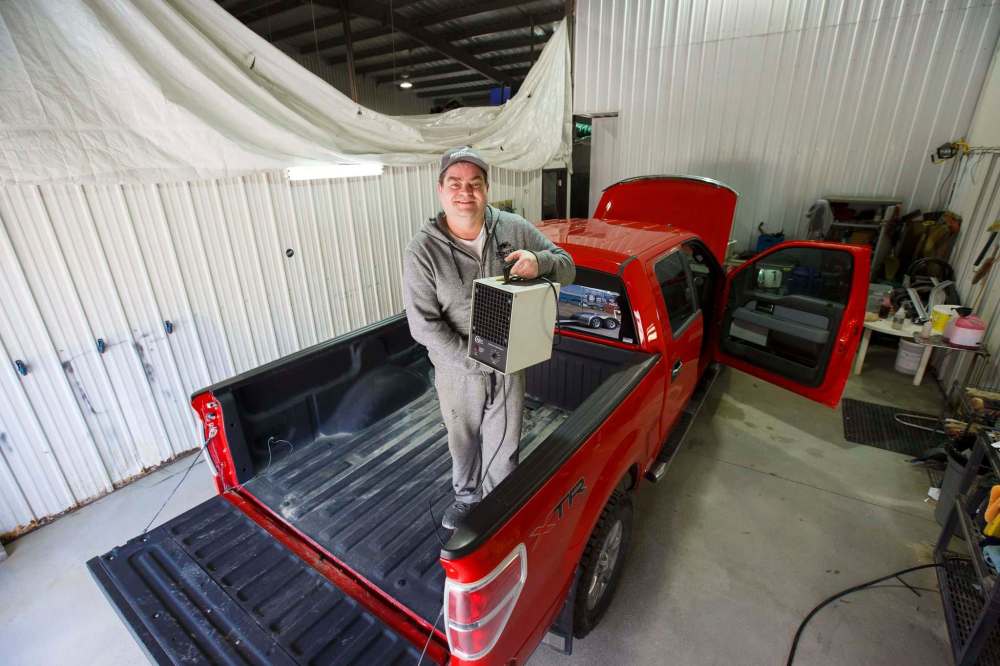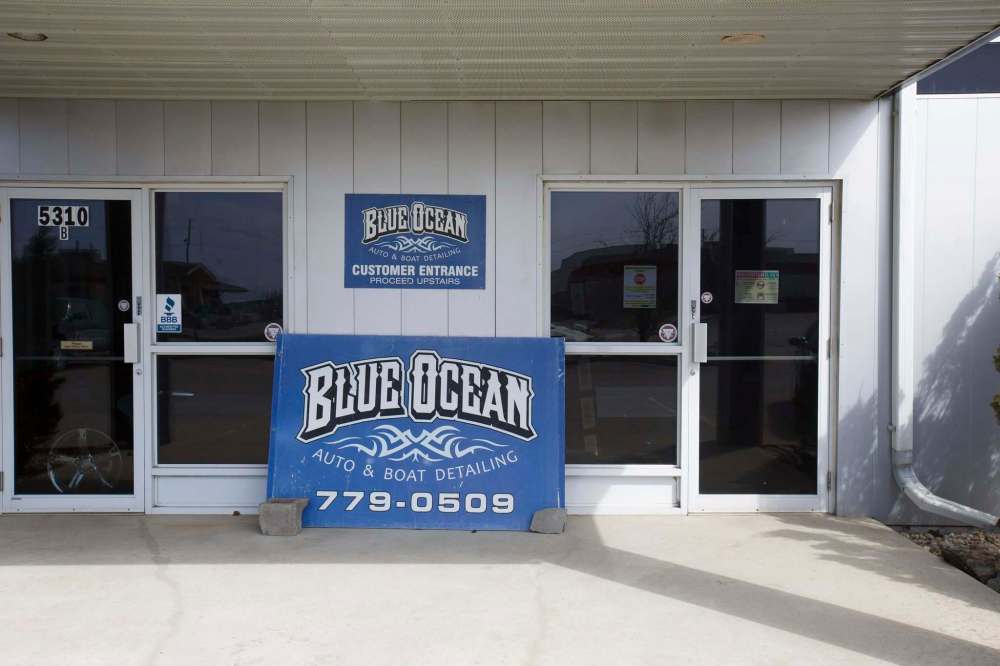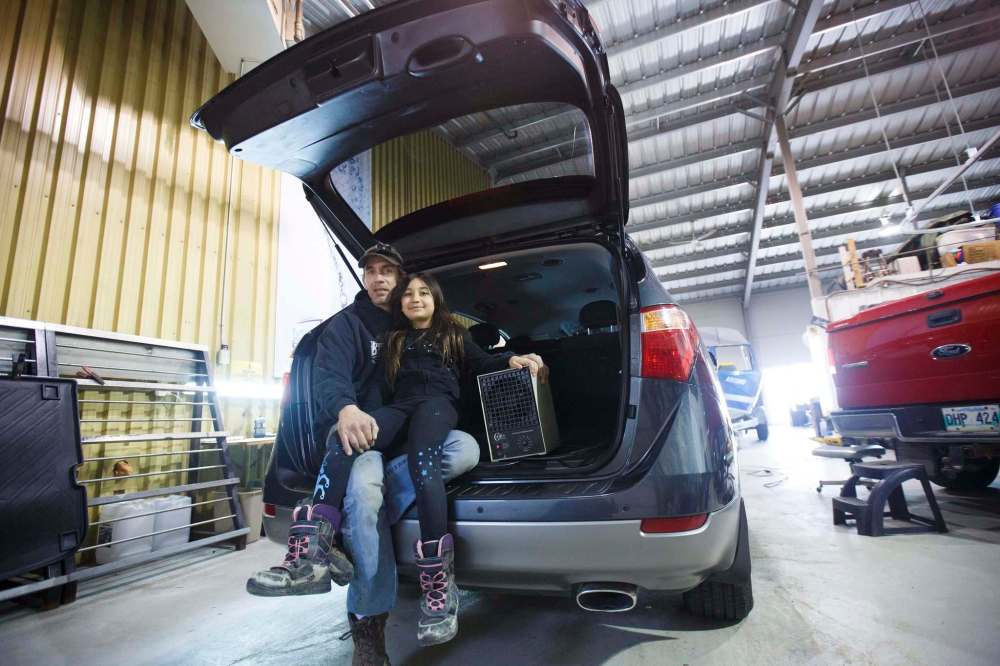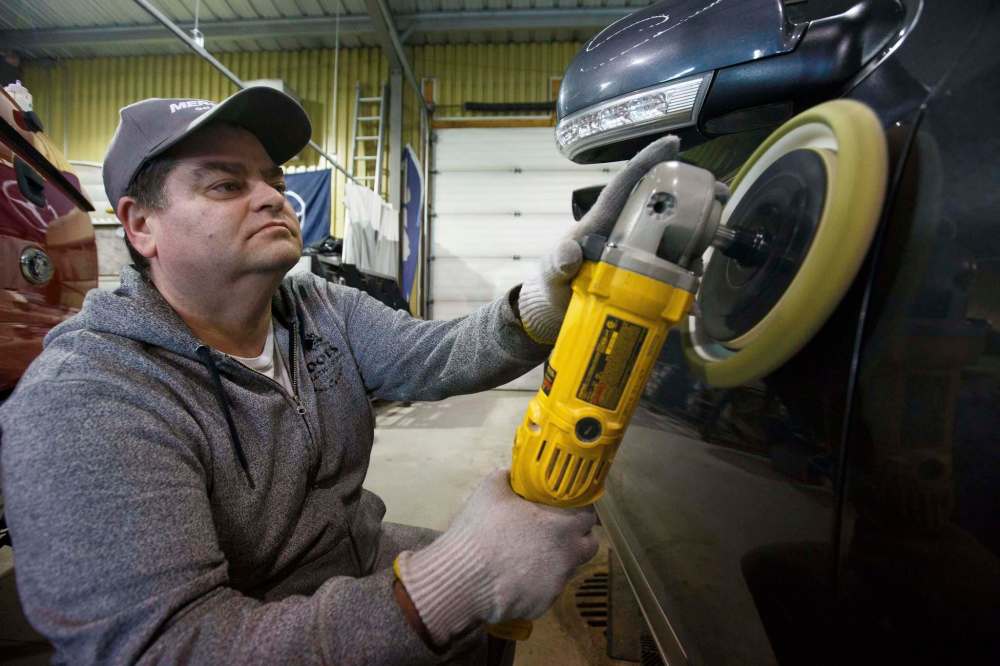Auto detail shop poised to fight pandemic
Lessons learned fighting hantavirus put to work on coronavirus
Advertisement
Read this article for free:
or
Already have an account? Log in here »
To continue reading, please subscribe:
Monthly Digital Subscription
$0 for the first 4 weeks*
- Enjoy unlimited reading on winnipegfreepress.com
- Read the E-Edition, our digital replica newspaper
- Access News Break, our award-winning app
- Play interactive puzzles
*No charge for 4 weeks then price increases to the regular rate of $19.00 plus GST every four weeks. Offer available to new and qualified returning subscribers only. Cancel any time.
Monthly Digital Subscription
$4.75/week*
- Enjoy unlimited reading on winnipegfreepress.com
- Read the E-Edition, our digital replica newspaper
- Access News Break, our award-winning app
- Play interactive puzzles
*Billed as $19 plus GST every four weeks. Cancel any time.
To continue reading, please subscribe:
Add Free Press access to your Brandon Sun subscription for only an additional
$1 for the first 4 weeks*
*Your next subscription payment will increase by $1.00 and you will be charged $16.99 plus GST for four weeks. After four weeks, your payment will increase to $23.99 plus GST every four weeks.
Read unlimited articles for free today:
or
Already have an account? Log in here »
Hey there, time traveller!
This article was published 18/04/2020 (2050 days ago), so information in it may no longer be current.
Since COVID-19 has taught us to continually wash our hands, and many of us have already cleaned every corner of our homes, it’s a sure bet a few of us have also turned our efforts to sanitizing our vehicles.
Your usual Saturday morning ritual of washing your car on the driveway with the garden hose and vacuuming the interior and wiping down hard surfaces with car cleaning products is likely all you’ll need to keep your vehicle shiny and safe — but if you know or suspect your vehicle has come into contact with coronavirus, or just want to increase your peace of mind, it may be time to call in a professional.
The majority of auto detail shops, which fall under the same essential services category as automobile repair shops, have remained open during the pandemic.

Tom Segal, 45, the owner of Blue Ocean Auto Detailing in Headingley, has seen it all in the more than 25 years he’s been cleaning cars, including dirty diapers, rotten food crammed between seats and rodent infestations, but this is his first pandemic.
“It has been challenging,” says Segal, “about 40 per cent of our business is customers who get their personal vehicles detailed and almost all of that business has dried up.”
Thankfully for Segal some of his loyal customers have been purchasing gift certificates for future detailing services and several smaller auto dealerships who rely on his services to clean and recondition the vehicles they purchase at auction or take in on trade has continued to bring him business — but the decline in work from the public has already caused the layoff of several employees. “We also polish boats, so we are hopeful that side of our business will pick up,” he says,” but we aren’t even sure if boat launches will be opening anytime soon.”
For now anytime is taking it day by day, and doing detail jobs by appointment only, while practising social distancing.
Blue Ocean already knows how to take special precautions to ensure employees are safe on the job, especially when dealing with a virus. They learned to be careful while cleaning vehicles potentially exposed to hantavirus, a virus found in the urine, saliva, or droppings of infected deer mice and some other wild rodents. Exposure to this virus can cause a rare but serious lung disease called hantavirus pulmonary syndrome, and Segal’s shop specializes in cleaning vehicles that have been potentially exposed to this.

The disease has been reported in North America since 1993, but Canada only sees a few cases annually and it isn’t spread from person to person. Other strains of the disease have been identified in Europe and Asia since the 1950s.
To battle hantavirus the detailers wear full hazmat suits and respirators and rely on one of six powerful air ionizer machines the shop owns to kill the virus. The units, each valued at about $1,000, are essential for eliminating not only odours, but also killing viruses such as hantavirus and COVID-19.
These air ionizer machines use high voltage to ionize (electrically charge) air molecules and work by creating a static charge around the airborne contaminants that are floating around in a room or inside a vehicle. Once charged with static, these particles simply stick to the nearest surface and the area is wiped down with disinfectant spray.
To properly sanitize a vehicle Blue Ocean leaves one of the machines running inside a vehicle for 24 hours, and the vehicle is also periodically run so the ionized air molecules can circulate through the heating, air and ventilation systems. In addition to killing any airborne or surface viruses, the ionization machine also does something else — it makes your musty old car smell fresh and new again.
“Customers are always amazed with the results,” says Segal, “the air ionizers were a great investment for our business, and now we are hoping they will help fight coronavirus.”

The cost to have your vehicle’s interior ionized starts at about $150, and a full auto detail package which includes a three-stage exterior cleaning, wax and polish, interior ionization and deep steam cleaning and engine detail can cost upwards of $500.
While there’s little evidence to support the theory a clean car actually drives better — in these trying times no one will deny the fact a clean car is definitely safer.
willy@freepress.mb.ca


